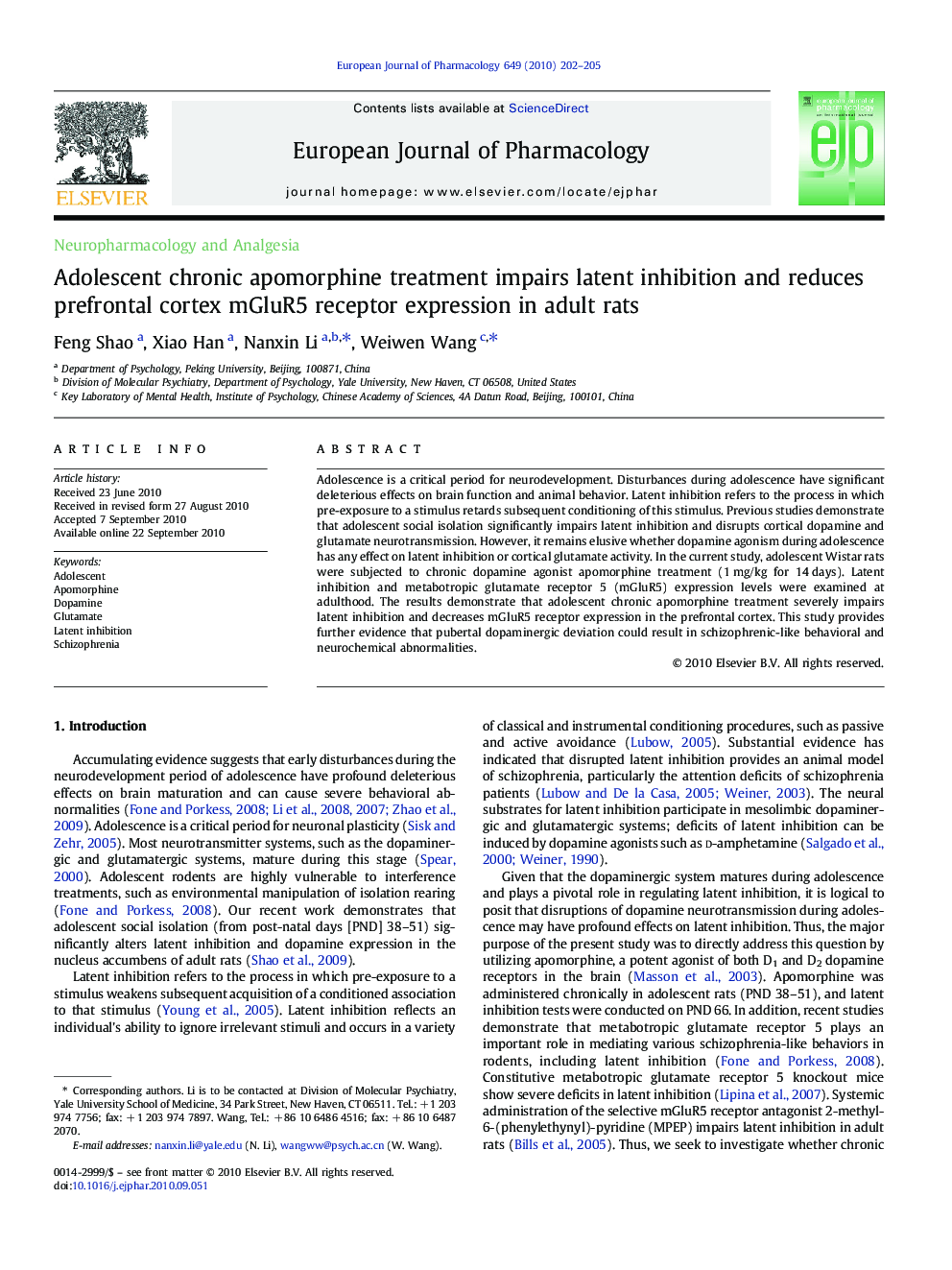| Article ID | Journal | Published Year | Pages | File Type |
|---|---|---|---|---|
| 2533149 | European Journal of Pharmacology | 2010 | 4 Pages |
Adolescence is a critical period for neurodevelopment. Disturbances during adolescence have significant deleterious effects on brain function and animal behavior. Latent inhibition refers to the process in which pre-exposure to a stimulus retards subsequent conditioning of this stimulus. Previous studies demonstrate that adolescent social isolation significantly impairs latent inhibition and disrupts cortical dopamine and glutamate neurotransmission. However, it remains elusive whether dopamine agonism during adolescence has any effect on latent inhibition or cortical glutamate activity. In the current study, adolescent Wistar rats were subjected to chronic dopamine agonist apomorphine treatment (1 mg/kg for 14 days). Latent inhibition and metabotropic glutamate receptor 5 (mGluR5) expression levels were examined at adulthood. The results demonstrate that adolescent chronic apomorphine treatment severely impairs latent inhibition and decreases mGluR5 receptor expression in the prefrontal cortex. This study provides further evidence that pubertal dopaminergic deviation could result in schizophrenic-like behavioral and neurochemical abnormalities.
